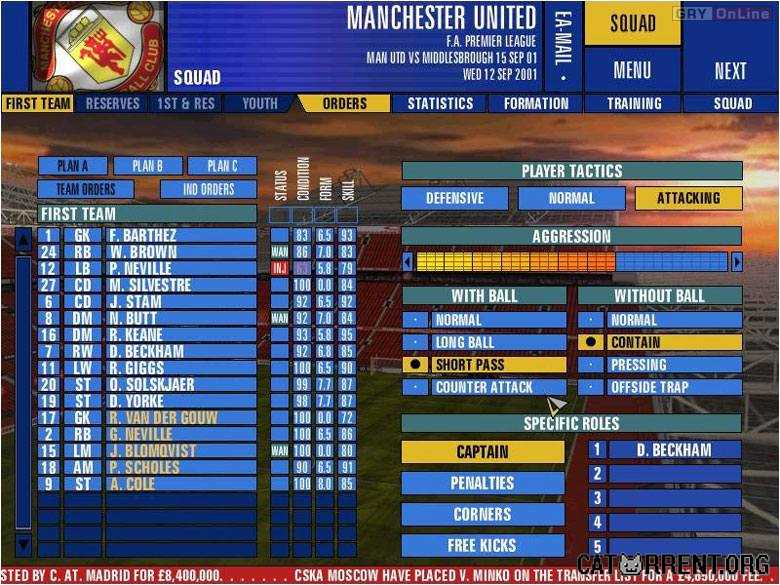In the high-stakes world of Premier League football, events rarely unfold with predictable precision. A single 24-hour period can swing a club from the dizzying heights of silverware to the sobering reality of legal setbacks, while behind the scenes, strategic moves in the transfer market dictate the very fabric of team futures. This dichotomy was strikingly evident recently, with Crystal Palace experiencing a rapid ascent and descent, even as the perennial titans of Manchester City orchestrated a complex ballet of player acquisitions and departures.
Crystal Palace: From Wembley Glory to European Derailed Dreams
Crystal Palace, under the astute guidance of manager Oliver Glasner, has been a team on an undeniable upward trajectory. Their recent FA Cup triumph, a historic first for the club, set the stage for a compelling Community Shield clash against Premier League champions Liverpool. What followed at Wembley was a testament to Palace`s burgeoning strength and tactical resilience. Despite early goals from Liverpool`s new signings Hugo Ekitike and Jeremie Frimpong, Palace twice clawed their way back, courtesy of Jean-Philippe Mateta and Ismaïla Sarr, before securing a dramatic 3-2 victory in a penalty shootout, thanks to a crucial save from goalkeeper Dean Henderson. This win wasn`t merely a piece of silverware; it was a clear declaration of intent, exposing defensive vulnerabilities even in a revitalized Liverpool squad and showcasing Palace`s ability to challenge top-tier opposition with a dynamic, attacking style.
However, the euphoria of lifting the Community Shield proved to be remarkably short-lived. Less than a day after their Wembley triumph, Palace received a stark reminder that modern football extends far beyond the green pitch. The Court of Arbitration for Sport (CAS) delivered a verdict that effectively clipped the Eagles` European wings, ruling that the club had violated UEFA`s multi-club ownership rules. The issue revolved around American businessman John Textor`s substantial 43% stake in Palace, held concurrently with an interest in French club Lyon, who also qualified for the Europa League. Despite Textor`s subsequent sale of his stake to New York Jets owner Woody Johnson, the CAS determined that this divestment came too late, missing both the initial March and extended May deadlines set by UEFA.
The consequence? Crystal Palace, instead of preparing for the prestigious UEFA Europa League, will now navigate the less glamorous but still significant UEFA Conference League. Adding a peculiar twist to this regulatory drama, Nottingham Forest, who finished seventh in the Premier League, will now be bumped up to automatically qualify for the Europa League league phase. It`s a rather ironic twist of fate, where on-field success, while commendable, ultimately bowed to the intricate and often unforgiving machinery of financial regulations and administrative deadlines. Palace fans, having protested against “UEFA Mafia” at Wembley, could only watch as their club`s European aspirations were re-routed by bureaucratic decree, a rather sobering postscript to their hard-earned trophy.
Manchester City`s Transfer Web: The Rodrygo Ripple Effect
While Crystal Palace grappled with the off-pitch ramifications of their success, Manchester City, under the perpetual strategic genius of Pep Guardiola, were busy weaving their own complex tapestry in the transfer market. Having largely concluded their major summer business early, City now appears poised for a bustling final week of the transfer window, marked by significant potential outgoings and one particularly intriguing incoming target: Rodrygo of Real Madrid. The Brazilian attacker, reportedly deemed surplus to requirements at the Bernabéu ahead of Xabi Alonso`s first full season, comes with a hefty price tag of approximately $116 million. For a club like City, such a figure is more a strategic investment than a prohibitive cost, especially when considering the potential for a cascading effect on their existing squad.
Indeed, a move for Rodrygo would likely trigger a series of player departures, creating a fascinating “domino effect” across the Premier League. Savinho, the promising winger acquired from Troyes last season, is reportedly on his way to Tottenham Hotspur, seeking more consistent playing time crucial for World Cup aspirations. Young midfielder James McAtee is back on Nottingham Forest`s radar, a testament to his continued development. Perhaps the most notable potential exit is Jack Grealish, who appears set for a loan move to Everton. Grealish`s role at City has diminished, culminating in his omission from their recent Club World Cup squad. A switch to Merseyside could offer the 29-year-old a much-needed opportunity to reignite his career and demonstrate the substantial value he still possesses, particularly given Everton`s shrewd recruitment in other areas of the pitch. The logic, it seems, is that while City meticulously builds its super-squad, other clubs can benefit from the talent that is simply too abundant for one manager to utilize fully. It`s a strategic dance where every move by a titan reverberates through the entire ecosystem, creating opportunities and challenges for clubs across the league.
The Unseen Game: Navigating Modern Football`s Complexities
These two narratives—Crystal Palace`s bittersweet weekend and Manchester City`s intricate transfer dealings—underscore the multi-faceted nature of modern professional football. It is a sport where on-field brilliance, tactical acumen, and sheer athletic prowess are but one part of a larger, often opaque, equation. Financial regulations, ownership structures, and the relentless churn of the transfer market play equally critical roles, shaping fortunes and dictating destinies.
For fans, the focus naturally gravitates towards the goals, the saves, and the dramatic victories. Yet, beneath this visible spectacle lies a complex web of legal precedents, financial negotiations, and strategic maneuvering. Crystal Palace`s experience serves as a stark reminder that even the most hard-fought sporting achievements can be altered by off-pitch rulings. Conversely, Manchester City`s transfer strategy highlights the calculated, almost chess-like, approach of elite clubs, where every player movement is a piece in a grander, long-term plan. This unseen game, played out in boardrooms and courtrooms as much as on pitches, is an integral, if sometimes frustrating, part of the beautiful game`s contemporary reality.

